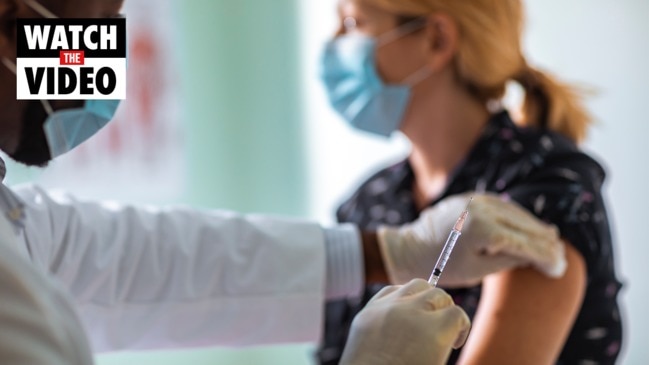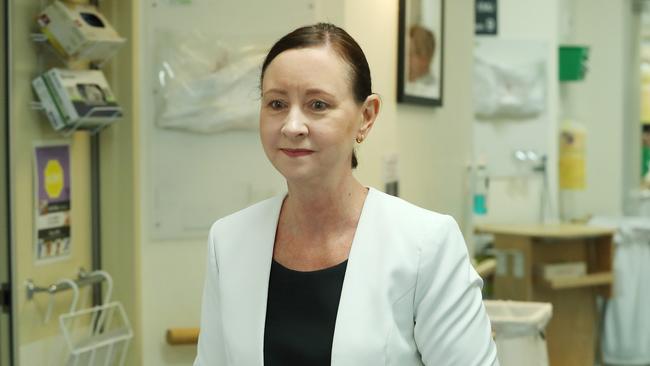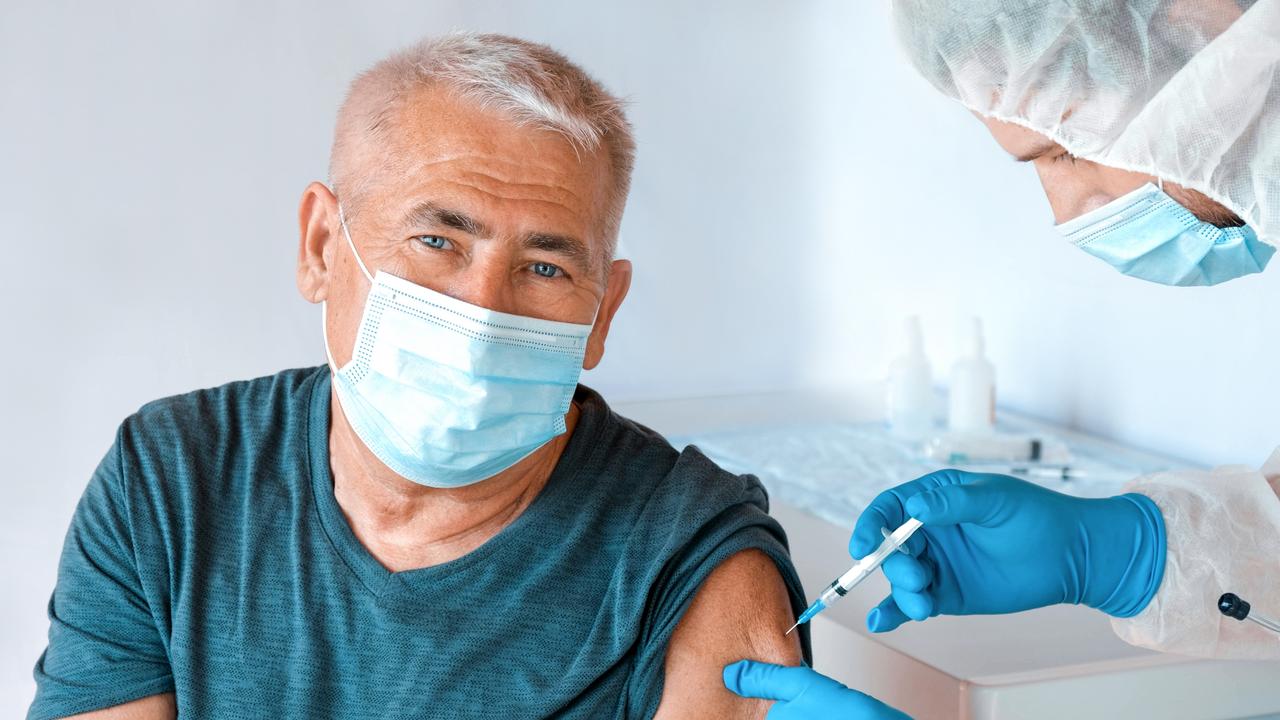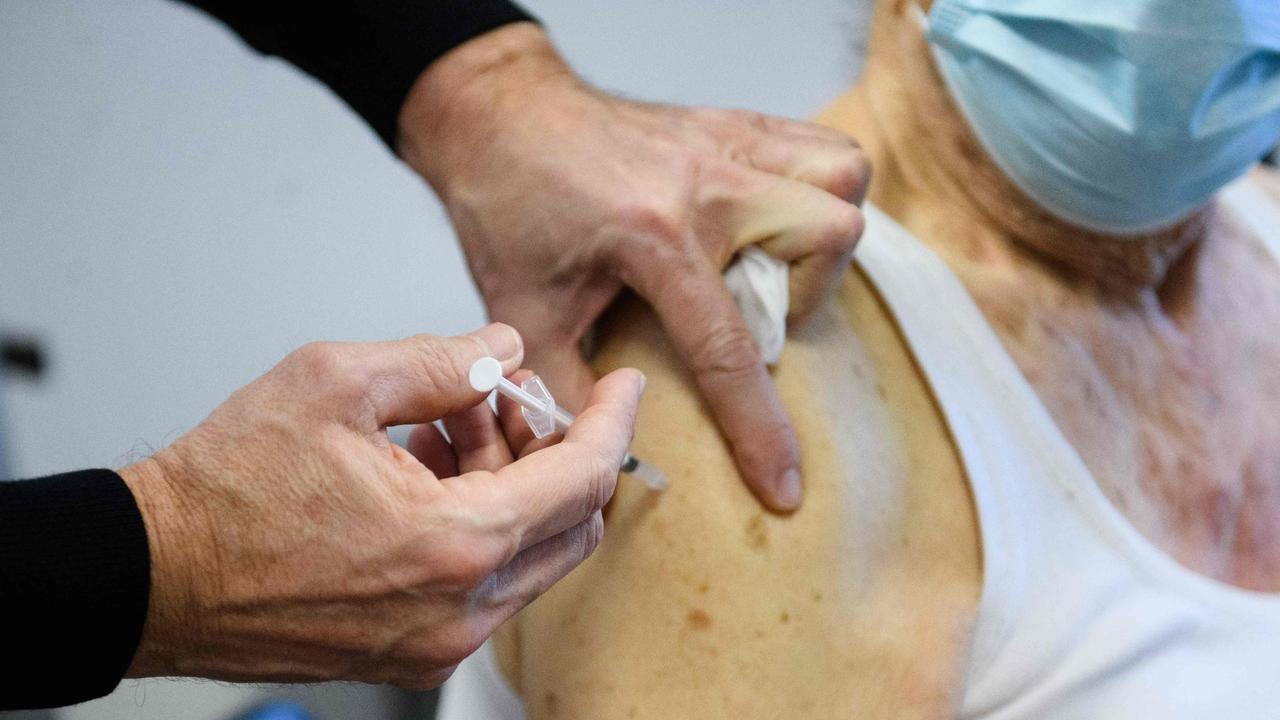Wrong advice given over AstraZeneca vaccine before backflip
The Queensland Government has been forced to backflip after giving conflicting safety advice about the AstraZeneca vaccine.

QLD Coronavirus News
Don't miss out on the headlines from QLD Coronavirus News. Followed categories will be added to My News.
Federal Health Minister Greg Hunt says it was the right move for a “calmer” Queensland to return its vaccine advice to the pre-existing standards for people with a history of severe allergic reactions.
There was a panicked seven-hour period of mass confusion yesterday in which the Queensland Government urged people with a history of anaphylaxis to delay getting the jab, after four bad reactions, despite existing medical advice that this was a known possible outcome.
At 10.30am state Health Minister Yvette D’Ath urged people with a history of reactions to delay the jab, by 12.30pm the Therapeutic Goods Administration advised there was no need to delay as it was a known reaction, and at 5.18pm Queensland Health revoked its earlier advice.
Mr Hunt said he would “leave it to Queensland” as to whether it should have waited for advice from the Therapeutic Goods Administration before telling people to delay.
“I would say they were being cautious, there is no criticism from the Commonwealth,” he said.
“We were able to solve it after it was drawn to our attention in a very short number of hours and provide the comfort and confidence.”

He said the TGA completed a rapid review at Queensland’s request and provided conclusions that the vaccine batch was safe and “there were no adverse events that were out of line without which was ordinarily expected”.
“I think that was an important sign of confidence in terms of action by one jurisdiction, response by the Commonwealth and then calm in that jurisdiction again,” Mr Hunt said.
There were 19 advice reactions to COVID-19 vaccines since the start of the rollout as of Wednesday, all in patients with prior history of anaphylaxis and all have quickly recovered. It is a known reaction in any vaccine, not specific to COVID-19 jabs.
While the reaction is extremely rare it is known to happen from any vaccine to people with a history of anaphylactic shock, and not specifically COVID-19 jabs.
Four cases of anaphylactic shock in 48 hours sparked Health Minister Yvette D’Ath to urge people with a history of the reaction to delay getting vaccinated, despite not having received advice back from drug regulator.
The incidents occurred at vaccination clinics in Bundaberg, Toowoomba and Ipswich, with all four cases occurring in people with a history of severe allergic reactions or anaphylaxis and within 30 minutes of receiving the jab.
The existing clinical advice for people being vaccinated have a history of severe allergic reactions was to remain under observation for 30 minutes after getting the dose.
At a press conference on Wednesday morning, Queensland Health Director General John Wakefield said people with a history of anaphylaxis or allergies should “hold off” getting the vaccine or consider their own circumstances, with Ms D’Ath giving the same advice.
“We are putting in place precautionary measures that anyone who’s got a severe allergic reaction in the past … that they delay getting the vaccine or alternatively we will be observing them for longer,” she said.
Dr Wakefield said investigations would assess whether the reactions resulted from a bad batch of the vaccine and the advice was to ensure “absolute transparency” about the rollout.
Prof Murphy even advised that the reaction was known to happen in any vaccine, not just COVID-19 jabs.

“If people are eligible at present and have a history of anaphylaxis we recommend … that they should not delay vaccination, but they should discuss their vaccination with their doctor,” Prof Murphy said.
“They should be vaccinated in a clinical setting where they can be observed for 30 minutes under medical supervision.”
The normal amount of time people are asked to wait for observation after receiving the jab is 15 minutes.
TGA boss John Skerritt said the reaction was not specific to COVID vaccines.
“Any medicine or vaccine in a very small number of people can cause this anaphylactic reaction (if they have a history),” Prof Skerritt said.
“There appears to be a cluster in Queensland. Clusters happen. It isn’t something special about what’s happening in Queensland.”
Prof Murphy said the batches had been tested, and used all across the country, and were fine. He said just one in ten per million people had an anaphylactic reaction to any vaccine.
A Queensland Health spokesman last night said it updated its guidelines again, following further advice from the TGA.
“Safety is, and must be, our first priority,” he said.
“The AstraZeneca vaccine will continue to be administered as per the TGA and ATAGI guidelines.”
Ironically, Ms D’Ath had urged people to “listen to the clinical experts” about the rollout.
“It is extremely risky to be going out there and questioning the efficacy of this vaccine, it’s irresponsible and it shouldn’t be done,” she said.
Meanwhile, there were six new cases of COVID-19 in the 24 hours to Wednesday morning, with all detected in hotel quarantine.
There are 41 active cases in Queensland.
About 428 close contacts of the doctor from the Princess Alexandra Hospital have been tested, with 77 per cent of results showing negative test results.
Close contacts of cases in the Hotel Grand Chancellor have also tested negative so far.
Ms D’Ath said Queensland was keeping a “watching brief” on the COVID-19 situation in New South Wales and urged anyone who recently travelled to the state to check the NSW Health site and follow protocols.



